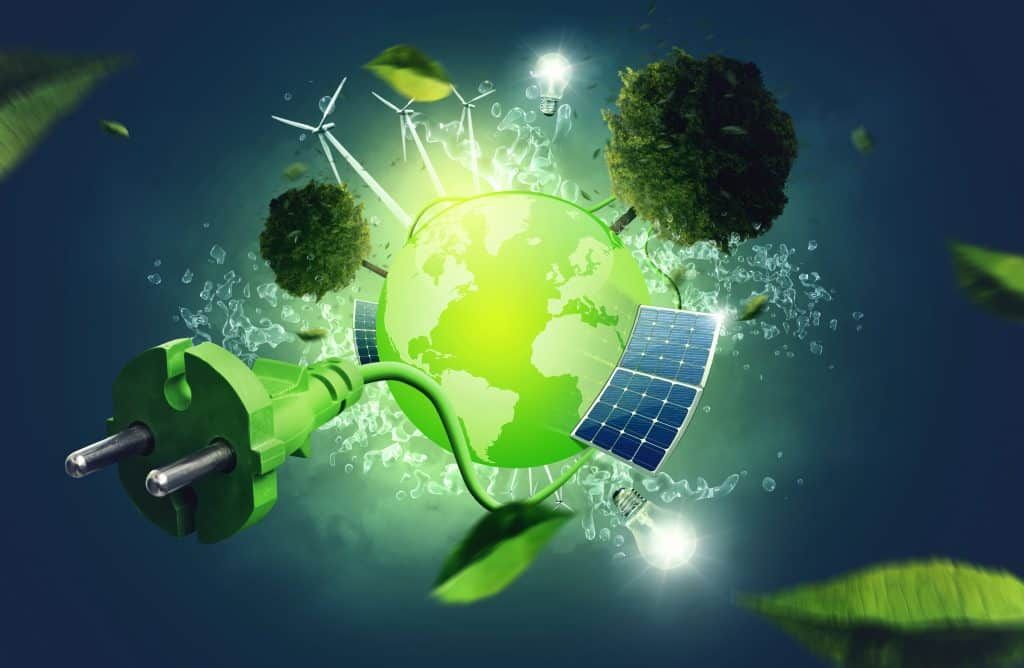Azerbaijan advances its transition to renewables addressing global energy challenges

Azerbaijan is actively advancing its transition from traditional to renewable energy sources. Despite being an oil and gas-producing nation, the country is committed to addressing global energy challenges and is keenly interested in harnessing clean energy. Notably, this year has been designated as the "Year of Solidarity for the Green World," coinciding with Baku's upcoming hosting of the 29th UN Conference of Parties on Climate Change.
Azerbaijan's focus on alternative energy sources and international cooperation in this sector has been developing over the past several years. President Ilham Aliyev has issued directives to leverage renewable energy resources in the liberated territories.
Under President Aliyev’s leadership, transforming these areas into "green energy" zones has become a key strategic priority in the country’s economic development plan. In a meeting held on January 6, 2021, discussing the economic outcomes of 2020 following the 44-day Patriotic War, President Aliyev articulated a strategic vision for establishing a Green Energy Zone in the liberated territories, emphasizing the significant energy potential available for restoration.
The selection of these regions is strategic, primarily due to their considerable alternative energy potential. To assess this potential comprehensively, Azerbaijan has engaged Japan's TEPSCO, an international consulting firm, to prepare a detailed concept document.
The objective of this concept is to harness the abundant renewable energy resources in the liberated territories, ensuring the delivery of environmentally friendly green energy. It aims to formulate proposals for implementing sustainable and energy-efficient green technologies, including the development of energy demand models based on various scenarios.
How are renewable energy sources utilized in the Green Energy Zone?
The development of the Green Energy Zone encompasses a comprehensive approach to integrating renewable energy sources in the liberated territories. Key initiatives include:
- Electricity Generation: Harnessing renewable energy for
electricity production.
- Energy Efficiency Measures: Implementing strategies to enhance
energy efficiency across various sectors.
- Electric Vehicles: Promoting the use of electric vehicles to
reduce emissions and improve air quality.
- Renewable Energy Installations: Installing renewable energy
devices, particularly solar panels, on building rooftops.
- Solar-Powered Lighting: Utilizing solar energy-based LED lamps
for street and road lighting.
- Sustainable Heating and Cooling: Integrating renewable energy
technologies for heating, cooling, and hot water supply.
- Smart Energy Management: Applying advanced energy management
technologies to optimize energy use.
- Energy-Oriented Waste Management: Implementing waste management
practices that prioritize energy recovery.
According to the State Agency for Renewable Energy Sources, the adoption of electric vehicles is a crucial factor in fostering a cleaner environment in the liberated territories.
But what is the advantage of electric cars?
1. Environmental benefits: Electric cars produce zero tailpipe emissions, significantly reducing air pollution and greenhouse gas emissions compared to traditional gasoline or diesel vehicles.
2. Cost efficiency: While the initial purchase price can be higher, electric vehicles (EVs) often have lower operating costs. They require less maintenance and benefit from cheaper fuel costs, especially with the growing availability of renewable energy sources.
3. Energy independence: By using domestically produced electricity, electric cars can reduce dependence on imported oil, enhancing national energy security.
4. Performance: Electric cars offer instant torque, resulting in smooth acceleration and a quiet driving experience. They also have fewer moving parts, which can contribute to a more reliable performance.
5. Incentives: Many governments provide tax incentives, rebates, and grants for purchasing electric vehicles, making them more financially accessible.
6. Technological innovation: The rise of electric vehicles is driving advancements in battery technology, energy storage, and smart grid solutions, contributing to a more sustainable energy ecosystem.
7. Public health: By reducing air pollutants, electric vehicles can improve public health outcomes, particularly in urban areas where air quality is often a concern.
8. Integration with renewable energy: Electric cars can be charged using renewable energy sources, making them a key component of a sustainable energy future.
Overall, the adoption of electric vehicles supports environmental sustainability, enhances economic efficiency, and promotes public health.
To promote the use of public electric vehicles and private cars within the "Green Energy Zone," it is essential to develop a robust infrastructure of electric charging stations, which is a critical component of this initiative.
To this end, plans are in place to install a total of 20 Electric Charging Stations (EDMs) in the liberated territories by the end of 2024. Currently, there are 12 operational electric charging facilities managed by "Azerishiq" OJSC at six locations, including the "Zangilan" substation, "Jabrayil" Intellectual Education Center, and "Khojali" Digital Management Center.
Additionally, three charging stations have been established in the courtyard of the Congress Center in Zangilan, and two more charging stations are located in the car park of the "Shusha Hotel and Congress Center" in Shusha.
In conclusion, the strategic development of the Green Energy Zone aims to harness the abundant renewable resources in liberated territories, focusing on initiatives that promote electricity generation, energy efficiency, and the integration of electric vehicles. The planned installation of 20 Electric Charging Stations by 2024 will further facilitate this transition, providing the necessary infrastructure to support electric mobility and contribute to a cleaner environment.
Here we are to serve you with news right now. It does not cost much, but worth your attention.
Choose to support open, independent, quality journalism and subscribe on a monthly basis.
By subscribing to our online newspaper, you can have full digital access to all news, analysis, and much more.
You can also follow AzerNEWS on Twitter @AzerNewsAz or Facebook @AzerNewsNewspaper
Thank you!

